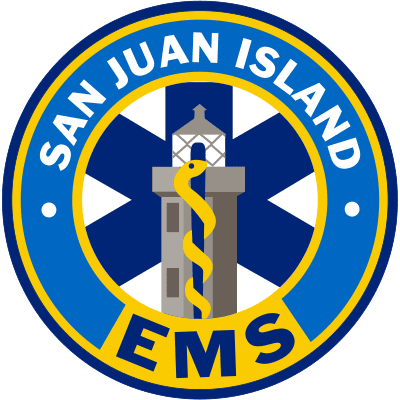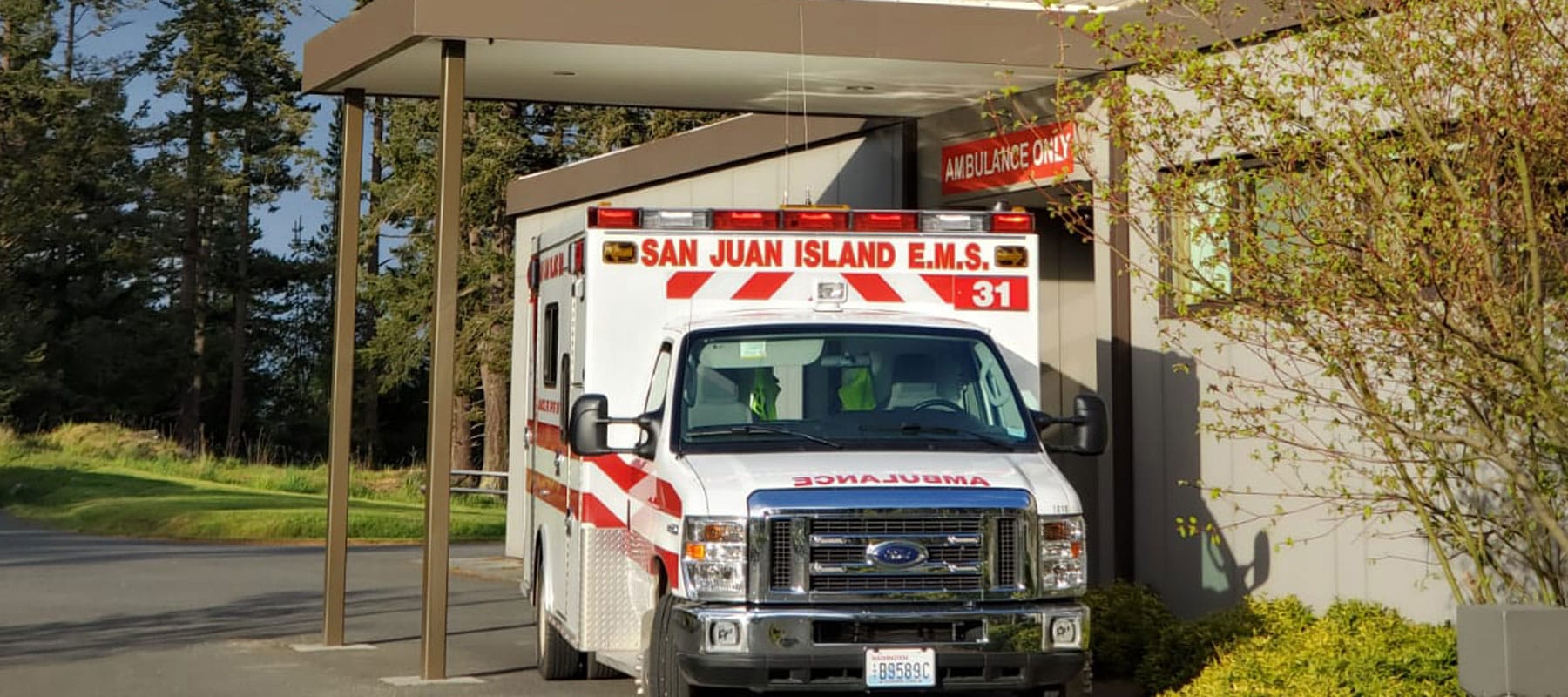Intricacies of an EMS Call
It’s four o’clock in the morning and you find that you can’t wake up your partner. After an agonizing moment, you decide you need to call 911. Dispatch takes your call; they determine where you are and ask you questions about the situation. They may even guide you through CPR on the phone.
In most cases a second dispatcher will already be dispatching San Juan Island EMS. At EMS, within approximately 2:16 minutes, EMTs sleeping in the station are awake, dressed, have located your address, performed a safety check, and are in route with an ambulance from the station in Friday Harbor. Paramedics, who spend an average of seventy hours per week on-call, will go in route from their home lights and sirens. During the day they will often respond from the station. About half the time, two paramedics will be on duty, and both are likely to come if there is not another call. Paramedics are in route, on average, nearly as quickly as the ambulance at 2:33.
If CPR is being performed, it is paged out as “CPR in-progress.” Many volunteer EMTs will rouse themselves from sleep, tell their partner they love them, and hurry to get in route. At our most recent CPR-in-progress we had nearly a dozen EMTs, led by the paramedic. Two fire engine crew members, including one EMT, also assisted.
If a patient needs advanced life support, a paramedic is the only person that can provide that care. For the unresponsive cardiac patient in this example, the patient cannot swallow nitroglycerin (an EMT level treatment), but a paramedic can give IV medication, intubate a patient for a definitive airway, or give several other medications such as cardiac epinephrine. This translates directly into lives saved.
San Juan Island EMS covers a rural area, which makes the necessity for paramedics and Advanced Life Support services much more crucial to patient care. We are the only provider of ambulance and paramedic services. Many patients need to be transported by air, ferry, or the Sheriff’s boat to reach definitive care.
The ambulance will arrive 7:14 minutes after going in route and will begin care. About fifteen seconds later the paramedics will arrive. In town, from the time EMS is paged, it takes an average of six minutes; at the Cape and Roach Harbor it takes longer. The times cited are San Juan Island EMS averages for the entire island in 2021. The Fire District also sends a fire engine with one or two EMTs.
“For many years we have made the decision to prioritize depth of coverage for our paramedic services. They work 50% more hours than our staff EMTs who respond from the station, and in return we lose about 15 seconds of response time,” said EMS Administrator Nathan Butler. “They often respond when a patient needs the level of care that only they can provide, even if not on duty. There’s only four of them, and they know there’s nobody else.” We are grateful to be adding a fifth paramedic at the end of the year.
San Juan County Public Hospital District No. 1 currently operates San Juan Island EMS and pays a large subsidy to support PeaceHealth Peace Island Medical Center. It is acquiring the Village at the Harbor in 2022.

